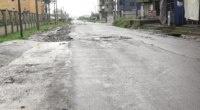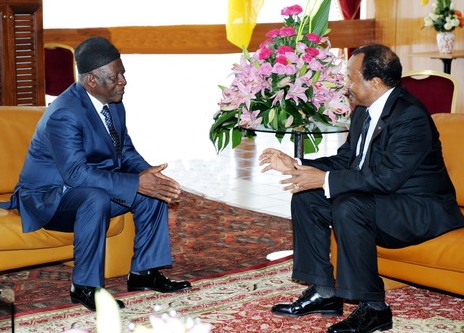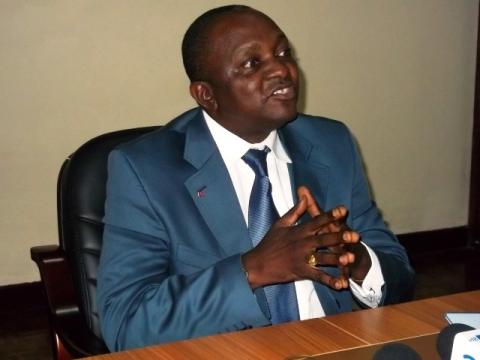A Call for a Transitional Government and Wide-Ranging Reforms for Cameroon’s Future
By James Agbor
October 6, 2025
As Cameroon approaches the pivotal 2025 presidential elections, the nation finds itself at a precarious crossroads, grappling with deep-seated divisions, a protracted crisis in the North West and South West Regions, and an urgent clamour for systemic political change. In this critical juncture, Agbor Balla, a prominent opinion leader, human rights advocate, and dedicated Cameroonian citizen, has issued a compelling call for transformative reforms. His proposals, outlined in a recent statement, emphasize the need for a transitional government, federal restructuring, and comprehensive reconciliation efforts to forge a path toward justice, equality, and enduring unity.
Balla’s vision is not rooted in partisan politics, but in a profound commitment to healing a fractured nation. “We stand at a crossroads,” he asserts, highlighting the historic opportunity presented by the upcoming elections to address longstanding grievances and avert further instability. Drawing from Cameroon’s painful history of marginalization and the ongoing Anglophone crisis, Balla urges all presidential candidates and political stakeholders to adopt a non-partisan framework for national renewal. His proposals serve as a blueprint for a peaceful, democratic future, warning that an undemocratic power transition could exacerbate institutional erosion, deepen governance failures, and perpetuate widespread suffering—where a privileged few enjoy luxuries while the masses endure inadequate access to clean water, crumbling roads, and substandard healthcare.
The Case for a Transitional Government
At the heart of Balla’s recommendations is the establishment of an inclusive Transitional Government lasting 3 to 4 years, to be formed immediately following the elections. This interim administration would prioritize genuine national reconciliation through inclusive dialogue, enact profound institutional and governance reforms, and lay the foundation for credible post-transition elections. Critically, the government must embody Cameroon’s rich diversity, incorporating representatives from various political factions, civil society, and regional groups.
This transitional model draws parallels to successful post-conflict frameworks in other African nations, such as those in South Africa and Liberia, where temporary governments facilitated dialogue and reform without entrenching power imbalances. In Cameroon’s context, it could serve as a bulwark against the perpetuation of centralized authority, which has fuelled regional discontent. By providing a neutral space for reform, Balla argues, it would prevent the “floodgates of further instability” from opening, ensuring that the nation’s future is not dictated by entrenched elites but shaped by collective will.
Embracing a Federal System to Strengthen Unity
Balla advocates for a “genuine federal arrangement” as a cornerstone of national cohesion, countering the notion that decentralization weakens unity. Under this system, federated states would wield constitutional authority over local governance, resource management, and cultural preservation, all within a unified Cameroonian framework. This proposal directly addresses the marginalization felt in Anglophone regions, where demands for autonomy have escalated into conflict.
Critics of federalism in Cameroon often cite fears of secession, but Balla reframes it as a unifying force. A federal structure, he posits, would protect diversity and prevent the dominance of any single region or ethnic group, fostering equitable development. This aligns with global precedents, like Nigeria’s federal model, which, despite challenges, has accommodated diverse identities. Implementing such a system during the transitional period could mitigate the Anglophone crisis by granting meaningful self-governance, ultimately reinforcing national bonds through mutual respect rather than imposed centralization.
Urgent Release of Political Prisoners and Amnesty Measures
A key pillar of Balla’s call is the immediate release of all political prisoners, particularly those detained amid the Anglophone crisis. He emphasizes a comprehensive approach: amnesty for individuals whose only offense was peaceful expression or protest participation, allowing their stigma-free reintegration into society; and clemency, including pardons or sentence reductions, for those convicted under disproportionate laws.
This demand underscores a broader critique of Cameroon’s justice system, which has been accused of weaponizing detention to suppress dissent. By freeing thousands held for political or conscience-related reasons, the transitional government could signal a genuine commitment to reconciliation. Balla’s proposal not only promotes compassion but also builds essential trust, paving the way for dialogue. Without such measures, he warns, Cameroon risks perpetuating cycles of resentment, hindering progress toward peace and democratic legitimacy.
Drafting a New, Inclusive Constitution
Balla envisions a transitional era dedicated to crafting a new constitution through a transparent, people-driven process. This document would enshrine rotational presidency to guarantee regional equity, delineate federal powers insulated from interference, establish an independent electoral commission, and safeguard minority rights in language, culture, and resource distribution.
This constitutional overhaul represents a radical departure from the current framework, which many view as outdated and biased toward central authority. By involving citizens in its drafting, the process could democratize governance, addressing historical inequities and preventing future abuses. Balla’s emphasis on rotational leadership echoes systems in countries like Switzerland, where power-sharing mechanisms ensure stability in diverse societies. In Cameroon, it could dismantle the monopoly of power, fostering a more representative democracy.
Pursuing Truth, Justice, and Reconciliation
Finally, Balla calls for a national truth, justice, and reconciliation commission to confront historical injustices, acknowledge past atrocities, and mend societal rifts. Modeled after South Africa’s Truth and Reconciliation Commission, this body would provide a platform for victims and perpetrators to engage, promoting healing over retribution.
In a nation scarred by colonial legacies, ethnic tensions, and recent violence, such a process is indispensable. Balla’s proposal critiques the status quo’s failure to address these wounds, arguing that true unity demands accountability. By integrating this into the transitional agenda, Cameroon could emerge stronger, with institutions rebuilt on principles of justice and collective responsibility.
In his closing appeal, Balla invites Anglophone leaders, civil society, and citizens to refine and endorse these ideas, presenting a united front. “The time to act is now,” he declares, urging candidates to commit publicly. As Cameroon teeters on the edge of transformation or turmoil, Balla’s critical analysis offers a roadmap not just for survival, but for a thriving, equitable future. Failure to heed this call risks entrenching the very divisions it seeks to heal, leaving the nation vulnerable to greater instability.





